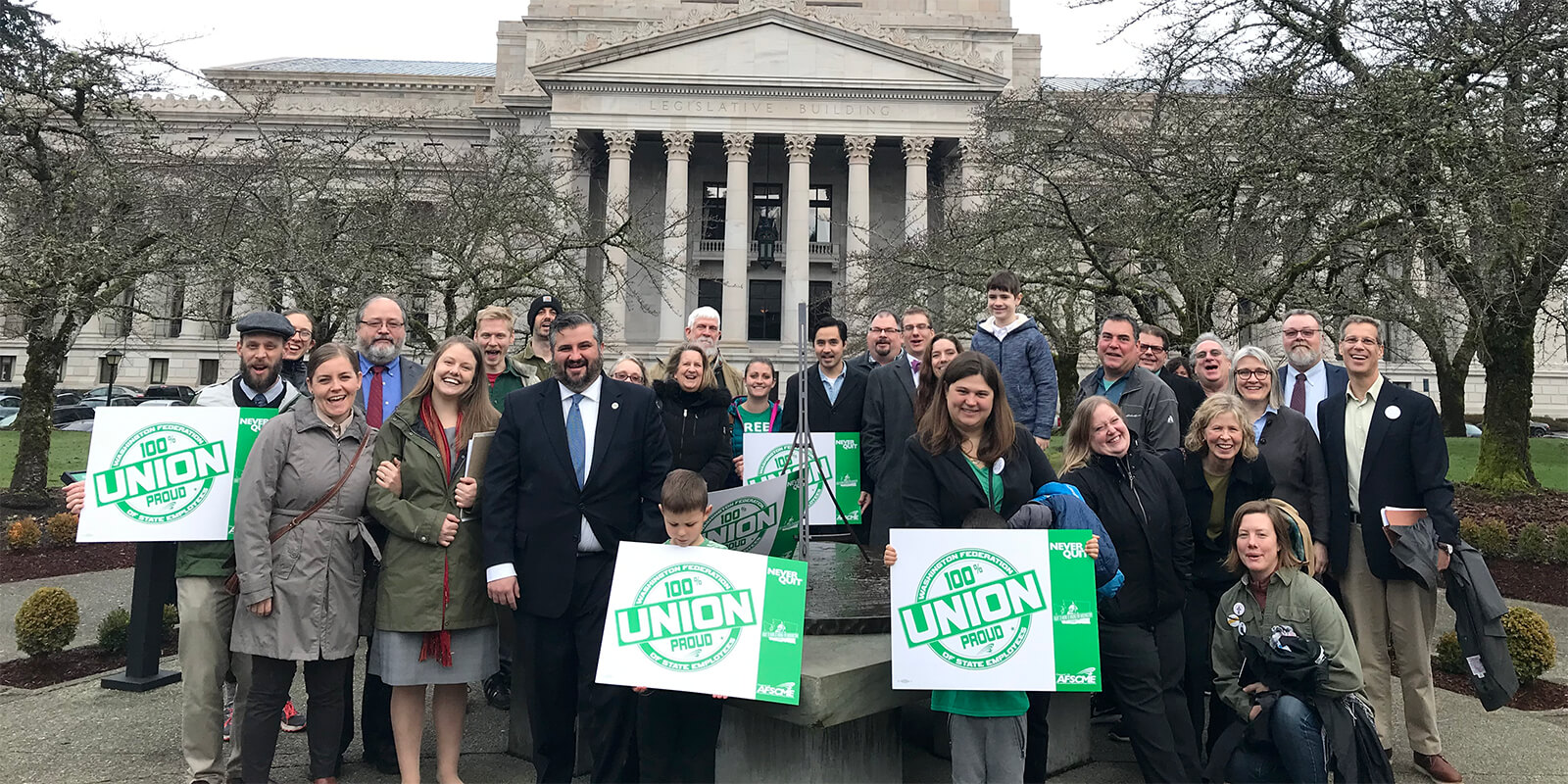However, without a strong voice on the job and the legal right to negotiate over issues that affect their work, the 600 assistant attorneys general have suffered from an exodus of staff, infrequent and unpredictable salary adjustments and no clear process for making workplace improvements.
With WFSE’s power of 44,000 state workers behind them, the assistant attorneys general are pushing state legislators to give them collective bargaining rights. They are participating in WFSE lobby days to persuade lawmakers to support collective bargaining bills pending in the state Senate and the House.
“The work we do affects every member of the public. Our salary and working conditions need to be improved so we continue to provide exceptional service to our clients,” said Eric Nelson, president of AWAAG. “We do a great job of advocating for the rights of our clients, the safety of children and the protection of our environment, but we need to a better job of advocating for ourselves. We are losing experienced attorneys. It’s time for us to get organized.”
Securing the right to collectively bargain – something other public employees in the state already have – will bring stability to the assistant attorneys general, their families and the communities they serve.
“I love my job, I believe in the work I do. Without having the right to collectively bargain, AAGs in Washington have been unable to advocate for an equitable and reliable salary structure. That makes it difficult to plan ahead for life's circumstances – buying a home, starting a family, saving for emergencies,” said Caroline Cress, an AWAAG board member.
She added, “WFSE's support of our efforts to pass legislation granting Washington AAGs collective bargaining rights has been invaluable, and we're more optimistic than ever about making our goal a reality.”
